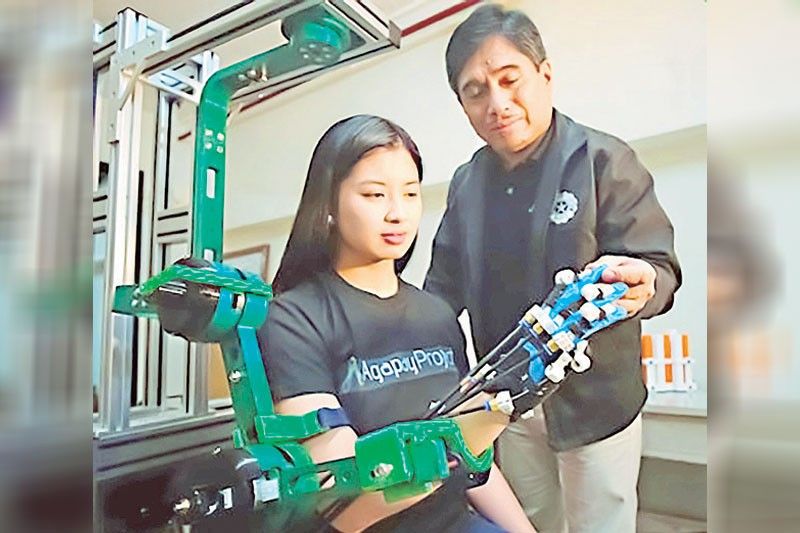DLSU’s wearable robot for stroke rehab gets international patent

MANILA, Philippines — De La Salle University (DLSU) has received its first international patent for the development of a “wearable robot” for stroke patients undergoing rehabilitation.
DLSU said it recently received the approval for the patent application that it filed in Singapore for the AGAPAY Exoskeleton wearable robot.
Designed to account for all the movements of the upper limbs, the device aims to provide post-stroke and injured patients “with a cost-efficient and high-performance rehabilitation system.”
“The robotic exoskeleton provides a safe, comfortable and user-friendly
experience during therapy exercises. The latest prototype of the device is actuated using high-power DC motors attached to an adjustable and lightweight frame,” the university said in its official newsletter published last Friday.
It added that the device, which has a real-time biofeedback system to record neuromuscular activity, can perform active and passive motion exercises through gamification using integrated haptics and a graphical user interface.
The AGAPAY Exoskeleton was developed with funding from the Department of Science and Technology- Philippine Council for Health Research and Development (DOST-PCHRD) and in partnership with the University of the Philippines Manila-Philippine General Hospital.
It was among the flagship projects of the DLSU Institute of Biomedical Engineering and Health Technologies (IBEHT).
In the patent application, the project team said the invention was developed in response to current challenges in rehabilitating stroke patients.
“Stroke and injury remain the two leading causes of disability in the Philippines. Recent technological advances in biomedical engineering have paved the way for the development of exoskeletons for rehabilitation,” the team’s patent application read.
“However, affordable devices that can effectively increase upper extremity motor recovery are still not available in developing regions, where access to modern medical facilities is limited,” it added.
The project brief published on the DOST-PCHRD website noted that stroke is a major burden not only to the physical, psychological and financial well-being of patients, but also to the health care system, economy and society in general.
“Conventionally, stroke patients are rehabilitated through traditional rehabilitation therapy with the aid of physiotherapists and rehabilitation specialists, in which services are currently limited in the country. Moreover, there are no commercially available robotic exoskeletons manufactured locally,” the brief said.
The project was led by Prof. Nilo Bugtai, founding director of the IBEHT and faculty member of the Department of Manufacturing Engineering and Management of the DLSU Gokongwei College of Engineering.
Bugtai’s fellow faculty researchers include Dr. Jade Dungao, Dr. Rennan Baldovino and Engr. Alexander Abad, while collaborators from the medical field include Dr. Jose Alvin Mojica, Dr. Christopher Constantino and Dr. Jeremy Flordelis.
Lead researchers and associate researchers include Paul Dominick Baniqued, Aira Patrice Ong, Engr. Voltaire Dupo, Engr. Michael Manguerra, Winny Paredes, Maria Annyssa Perez, Carlos Matthew Cases, Eldrich Bong Velencerina and Hanz Emmanuel Timbre.
- Latest
- Trending


























